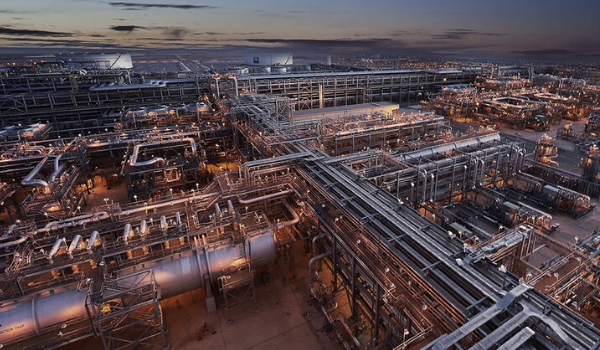Aramco IPO value reached $1.8 trillion. Saudi Arabia had a target for its Saudi Arabian Oil Company – known as Saudi Aramco – of $2 trillion and it nearly hit it.
The recent initial public offering of shares in Aramco on the Saudi Tadawul stock exchange was charged with superlatives: it was the biggest share listing in history by the world’s most profitable company. The shares rose 10% in early first-day trading in Riyadh hitting their daily limit following strong demand from Saudi and regional investors who bid for nearly five times the number of shares on offer.
The company’s public debut raised $26.5 billion which exceeded the $25 billion Chinese e-commerce giant Alibaba raised when that company went public in September 2014.
The IPO allowed investors to buy 1.5% of Aramco’s stock. Two-thirds of the IPO was taken up by institutions and the rest by private investors in Saudi Arabia and other GCC states. The price at the end of the close of business on the first day of trading gave the company a total valuation of $1.88 trillion. This made it the largest listed company in the world comfortably ahead of Microsoft and Apple.
The IPO was long-awaited and forms one of the centerpieces of Saudi Arabia’s Vision 2030 program aimed at transforming the Saudi economy. When the idea was first floated in 2016, market observers were surprised by the targeted valuation for Aramco of $2 trillion. The stock briefly hit a $2 trillion valuation on the second day of trading.
Aramco’s current share price implies a valuation of approximately 21 times projected 2019 earnings. This leaves the company trading in the middle of the group of major international oil companies. It has a higher valuation than Chevron (CVX) and Royal Dutch Shell (RDSA) for instance but currently trades at a discount to ExxonMobil (XOM) also based on projected 2019 earnings. Aramco’s valuation is however substantially higher than oil companies with strong state ownership such as Brazil’s Petrobras (PBR).
The possibility of investing in the “crown jewel” of the Saudi economy will be attractive to active investors especially those living in the region and who have a good understanding of the dynamics of the GCC and MENA economies. However, the company’s decision to list only on the Saudi Tadawul exchange for this first issue has meant that few foreigners can in fact directly participate.
An interesting development for a passive investor
Fortunately, the floatation has been timed to coincide with another most interesting development. Earlier this year MSCI, following in the footsteps of S&P Dow Jones and FTSE Russell, made the decision, in consultation with international institutional investors, to include Saudi Arabia in the MSCI Emerging Markets Index and also, therefore, to fast-track Saudi Aramco’s inclusion into their indices.
This will lead to two developments. Firstly demand for the shares is likely to rise given the fact that institutional investors investing in emerging markets in many cases will wish to invest a proportionate amount in Aramco stock to maintain appropriate exposure alignment.
Secondly, and importantly for Sarwa’s investors, retail investors will also have access to the Saudi stock market and particularly Aramco stock by having in their portfolio an underlying ETF, for example, the iShares Core MSCI Emerging Markets ETF (IEMG).
Exposure to emerging markets is always an interesting way to increase diversification, and thereby reduce risk, in any investor’s portfolio. In fact, the inclusion of Saudi Arabia in an emerging market index further increases the diversification benefits available. For instance, financials and materials comprise more than 75% of the Riyadh Tadawul index. Information technology, one of the biggest sectors globally, has no representation in Saudi Arabia, while industrials and healthcare also have relatively low exposures.
Also important is the fact that the Saudi riyal is pegged to the US dollar. This was one of the main contributors to Saudi Arabia’s outperformance against other emerging markets in 2018, adding 4.3% to performance. Many emerging markets suffered from an appreciating US dollar.
To summarise, it is attractive to have exposure to emerging markets in any portfolio and the inclusion of Saudi Arabia and particularly the recent Aramco floatation has made this sector even more attractive. All of these advantages can be made available through Sarwa’s portfolios, for instance, by means of exposure to the iShares Core MSCI Emerging Markets ETF (IEMG) mentioned above.
Ready to invest in your future?
